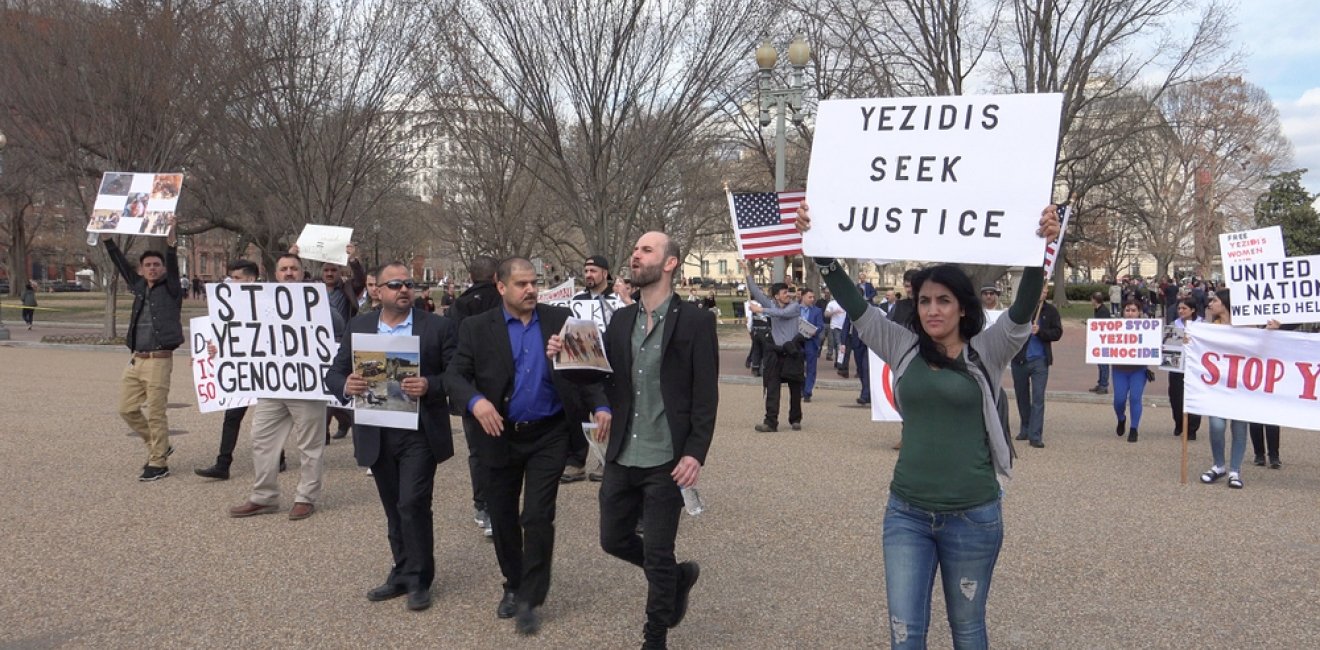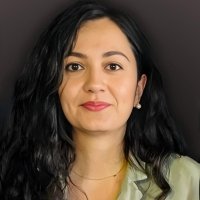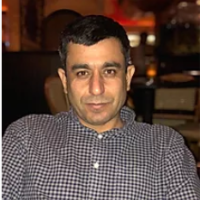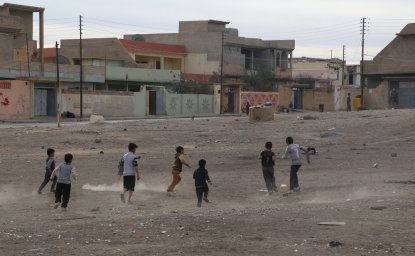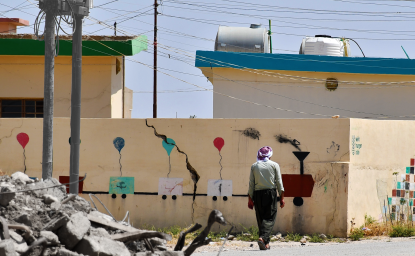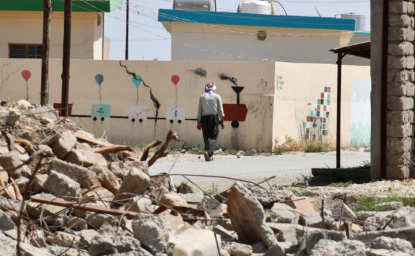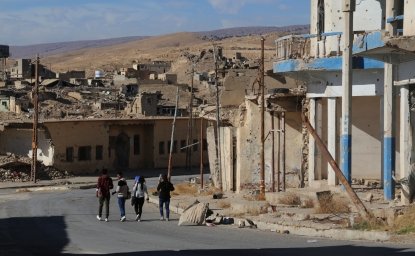“It has never been so unsafe to be Yazidi in an Iraq that is leaving its historic communities behind as it continues to rebuild the rest of the country with international backing.”
The 10-year commemoration of the Yazidi Genocide is on August 3. Nearly 10 years since ISIS launched its genocidal campaign, approximately 200,000 Yazidis remain displaced, predominantly in the Kurdistan Region of Iraq. Rather than commemorating justice and reconstruction in Sinjar, Yazidis and other historic communities, are counting the failures and challenges facing them.
Sinjar is still a conflict zone
It has never been so unsafe to be Yazidi in an Iraq that is leaving its historic communities behind as it rebuilds the rest of the country with international backing. Since the genocide, nearly 25% of the Yazidi population have emigrated. Sinjar, known as Shingal to the Yazidi people, has not been prioritized in recovery and reconstruction. Historic villages have become ghost towns with mass graves that have yet to be opened and exhumed. There is a chronic lack of basic infrastructure and services. Hate crimes are on the rise, and there is no legislation in place to prosecute perpetrators and protect victims. Survivors are often afraid to testify to the genocide and crimes against humanity that they experienced under ISIS because of minimal witness protection measures.
Neither the Government of Iraq nor the Kurdistan Regional Government can hold the fort or assume full responsibility for security in Sinjar. While the Government of Iraq is technically in control of Sinjar, the region remains largely unstable. A report published this month explains the multi-faceted complexities in Sinjar.
This power vacuum has incentivized numerous armed groups to assert control in Sinjar, both in terms of security and administration. While most of the armed groups in Sinjar consist of Yezidis, they are directed or controlled by various entities, including the Sinjar Resistance Units (Yekineyen Berxwedana Sengale–YBS), Hashd al-Shaabi (Popular Mobilization Forces–PMF), the Kurdistan Workers’ Party (PKK), the Kurdistan Democratic Party (KDP), the Patriotic Union of Kurdistan (PUK), and others. For Sinjar to be secure, we request that security be depoliticized and that a federal body be created from these groups under structure of Iraqi Ministry of Defense or Ministry of Interior to ensure security is provided locally without political interference.
The Sinjar Agreement was endorsed by the United Nations Assistance Mission for Iraq and international community to pave the way for a sustainable future in Sinjar. However, Sinjari leaders, residents, activists, and local representatives were not invited as pertinent consultative stakeholders in its drafting. With no security and political representation, Sinjaris have lost confidence in government stakeholders and have little hope for a sustainable future in their homeland.
Calling the US government to action
While the United States remains one of the largest donors to the Sinjari people, the Ukraine War dramatically reduced funding levels and access to funding for local NGOs and international agencies on the ground. This drop in funding comes at a time when both governments refuse to take responsibility in Sinjar and the presence of armed groups undermines security. Local NGOs, such as the Free Yezidi Foundation, Sinjar Academy, and Yazda, are unable to fill the gap that both governments have created and provide healthcare, education, livelihoods, and other needs to local returnees.
On July 23, Pari Ibrahim from the Free Yezidi Foundation, Murad Ismael from Sinjar Academy, and Natia Navrouzov from Yazda met with US Secretary of State Anthony Blinken to explain the dangers facing Sinjar and the urgent need for concrete US government support. There is an overdue need for a Special Envoy, empowered by the White House and State Department, dedicated to the protection of minority communities in the Middle East. This should be a priority for the newly elected president and Congress of the most important ally for both the Government of Iraq and Kurdistan Regional Government.
Actionable & achievable solutions
The need for a new comprehensive security framework and governance system to replace the Sinjar Agreement has never been so urgent. Building on the findings of a September 2022 report on security in Sinjar, a new policy paper published by the Wilson Center and co-authored by Yazda and the Zovighian Public Office, “There is No Future in Sinjar Without Safety and Agency,” explains the ongoing security challenges and proposes nine actionable and achievable solutions. These include re-visiting the tenets of the Sinjar Agreement, establishing a multi-stakeholder and multi-community oversight body, enabling mechanisms for local governance, allocating direly needed funding, and hosting independent and fair elections for local community representatives.
Without these time-critical and measurable reforms to security and law enforcement through the authentic inclusion of Sinjar’s historic communities, Sinjar will continue to be unsafe and ill-equipped to host the 200,000 Yazidis still living in IDP camps and the equally numbered historic residents from Sunni and other minority communities.
The authors kindly thank Dima Toubaji from the Zovighian Public Office for contributing to this blog.
The views represented in this piece are those of the author and do not express the official position of the Wilson Center.

